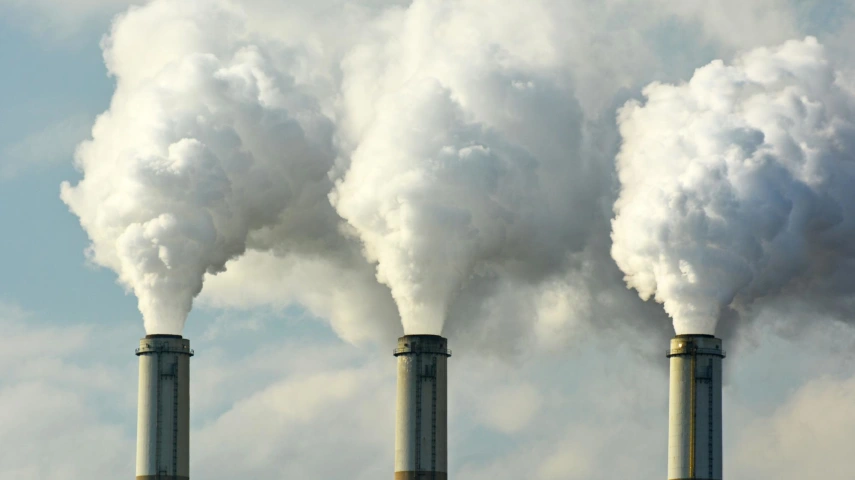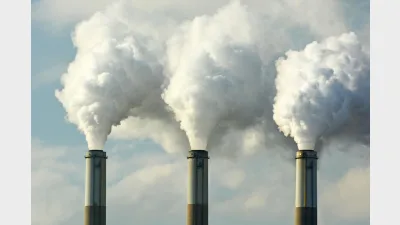Almost $40bn in super invested in ‘climate wrecking’ companies



Australia’s top 30 funds have reportedly invested over $39 billion in ‘climate wrecking’ companies in the last two years, compared to just $7.7 billion in clean energy companies over the same time period.
Analysing the default or largest investment options based on super funds’ latest disclosures in December 2023, Market Forces found funds collectively more than doubled their investments in 190 “climate wrecking” companies since December 2021, including Adani Group, BHP, Woodside, and ExxonMobil.
These investments have increased both in dollar terms and as a proportion of funds’ share investments, it observed.
Brett Morgan, superannuation funds campaigner at Market Forces, said such investments are “skyrocketing” while funds are “failing to rein in dangerous coal, oil and gas growth.”
“Tens of thousands of members are demanding immediate and decisive climate action from their super funds, by forcing coal, gas and oil companies to end their fossil fuel expansion plans and divesting where this fails,” he said.
Market Forces identified UniSuper’s Balanced option as the most exposed to the Climate Wreckers Index, with an exposure of 11.5 per cent. It was followed by Commonwealth Super Corporation’s default option at 10.8 per cent and MLC’s MySuper Growth option at 10.4 per cent.
“We’ve cross-checked the default or largest investment options of 30 of Australia’s largest super funds and found that the average option has nearly 9 per cent of its members’ share investments in Climate Wreckers Index companies,” it said.
Super Review sought comments from the funds regarding the claims, but while some declined, others did not respond by the time of publication. UniSuper was the only fund to respond.
“The figure quoted by Market Forces is largely UniSuper’s investment in BHP," UniSuper CIO, John Pearce, explained.
"We see companies with diversified businesses like BHP as part of the solution to decarbonisation, producing materials essential to the energy transition.”
Market Forces' research also showed that over the past two years, the $300 billion mega fund AustralianSuper has significantly increased its relative exposure to the Climate Wreckers Index, surpassing any other fund. This surge is primarily attributed to its substantial acquisition of Woodside shares in 2022.
“This now means that Woodside alone makes up around 20 per cent of the value of AustralianSuper’s investments in these climate wreckers,” Market Forces said.
On the other end of the spectrum, Market Forces found ESSSuper’s Balanced option and Aware Super’s High Growth option to have the lowest exposure to the Climate Wreckers Index in terms of share investments, standing at 6.6 per cent and 6.7 per cent, respectively.
According to Market Forces, funds seeking to “clean up” their members’ retirement savings should focus their efforts on three Australian companies – Woodside, Santos, and Whitehaven Coal – which are responsible for over half (59 per cent) of projected emissions from the fossil fuel expansion plans of companies in the average super fund’s portfolio.
“Members are sick of seeing their super funds fooled by Woodside and Santos’ greenwash and want their retirement savings out of filthy companies sabotaging the clean energy transition,” Morgan said.
Meeting climate commitments
In its report, Market Forces noted super funds’ investments in clean energy companies – those on the Bloomberg Goldman Sachs Global Clean Energy Index – have decreased by half a billion dollars to just $7.7 billion in the last two years.
“This now means that for every dollar invested in clean energy companies, super funds have five dollars invested in climate wreckers,” it said.
Admitting that clean energy companies offer a smaller pool of capital as a newer industry, Market Forces argued “this does not get super funds off the hook” for increasing investments in climate wreckers when they should be phasing them out.
It pointed out funds that cite active ownership in their climate commitments must identify and prioritise “problem companies” for targeted engagement.
“Corporate regulator ASIC has repeatedly warned it is on the lookout for super funds without a ‘reasonable basis’ for having made net zero claims or those without effective climate-related active ownership strategies, meaning funds that have let these companies get away with climate destruction for far too long should be very concerned,” it said.
Earlier this year, the regulator won its first greenwashing civil penalty action in March against Vanguard Investments and has two other proceedings underway in the Federal Court.
To date, it has issued 17 infringement notices in this area, totalling over $230,000.
Still, ASIC commissioner Alan Kirkland recently observed, there is a bit of curiosity regarding why this has been treated as an area of priority by ASIC.
“I have to say that I’m somewhat bemused by that reaction,” he said.
“Our work in this area is grounded in the prohibition of misleading or deceptive representations that has been a feature of Australian consumer protection law for 50 years.
“And I make that point because it signals an important feature of ASIC’s approach to enforcement in areas of emerging harm: while we welcome and support law reform where it can improve market integrity and consumer protection, we won’t wait for law reform where we see misconduct that breaches existing requirements.”
Recommended for you
The Assistant Treasurer has reaffirmed the government’s commitment to strengthening retirement outcomes, consumer protections and cyber resilience in superannuation.
The industry super fund has advanced reconciliation efforts with a new initiative focused on improving outcomes for First Nations members.
The regulator has announced fresh legal actions in relation to the Shield and First Guardian fund failures.
The Gateway Network Governance Body has unveiled a detailed roadmap to guide the superannuation industry through the upcoming Payday Super reforms.










